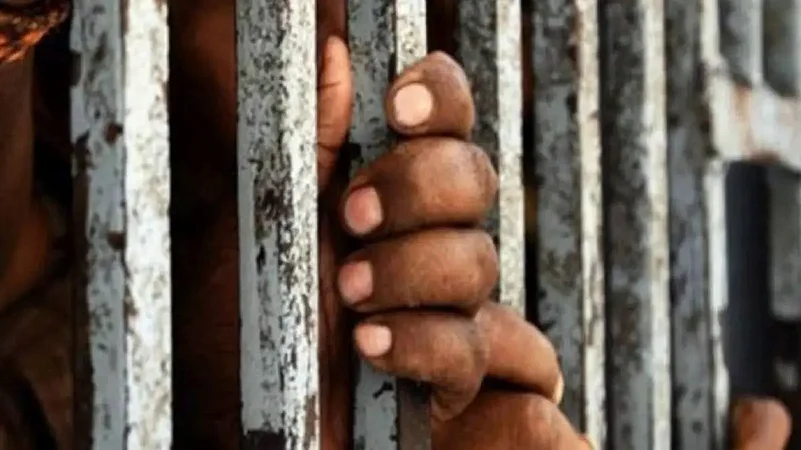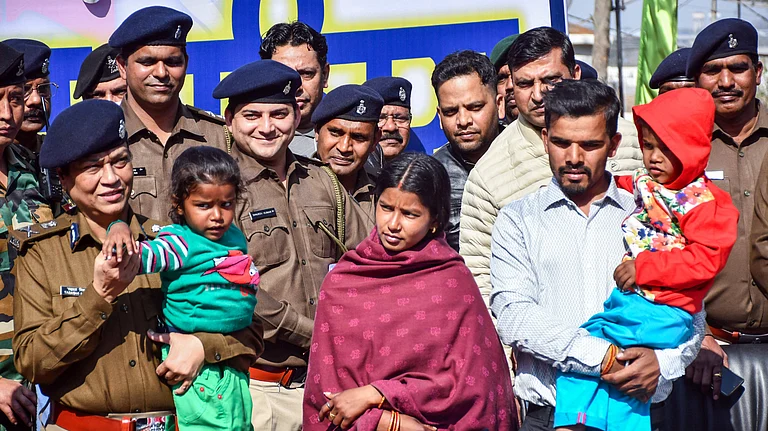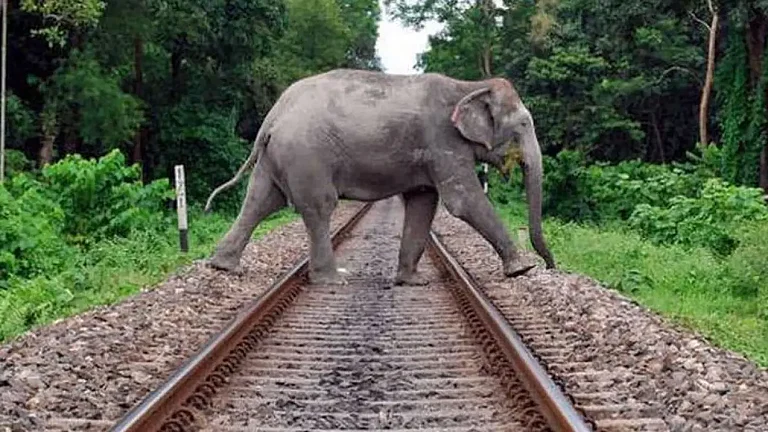“Death by agents of the State is not a hazard of life only in the northeast and Kashmir. In what is known as the ‘red corridor’ of India, where the extreme Left armed group, the Communist Party of India (Maoist), operates, instances of extrajudicial killing and detention leading to custodial death are quite common. In 2008, the Supreme Court directed the Chhattisgarh government to file an Action Taken Report on the findings of the National Human Rights Commission about extrajudicial killings in the state. Jharkhand has one of the highest numbers of detentions and human rights violations.”
This statement has been taken from Kishalay Bhattacharjee’s book Blood on My Hands: Confessions of Staged Encounters. The book was published in 2015 by Harper Collins.
Throughout the majority of the 20th century, the local political landscape of Jharkhand revolved around the persistent demand for the establishment of an independent state. During its initial phase, these movements were spearheaded by tribal leaders who advocated for the creation of a distinct state exclusively catering to the tribal populace residing in the Chhota Nagpur region. Over time, tribal politics in Jharkhand became closely associated with the politics of Jal, Jungle, Zameen, symbolising the significance of water, forests, and land resources to the local population.
Today, socio-economic inequality and marginalisation faced by tribal communities contribute to human rights violations in Jharkhand. Despite being established as a state to address their concerns, the tribal population continues to face discrimination, land dispossession, and limited access to basic services. This neglect and exclusion create an environment where human rights abuses can thrive.
Jharkhand, which achieved statehood on November 15, 2000, after years of protests, is now facing questions about the realisation of its founders’ vision and the fulfilment of electoral promises. The state’s human rights record has come under scrutiny, with specific cases highlighting issues of custodial deaths and alleged police brutality.
The case of Sendhu Munda
The case of Sendhu Munda highlights the issue of custodial deaths and alleged police brutality in Jharkhand. On the night of May 5 or the early hours of May 6, he was allegedly brutally beaten by jail personnel at Latehar Jail, leading to his untimely death. His wife, Reena Devi, has come forward with a heart-wrenching account of the incident, stating that she has yet to receive the post-mortem report or witness any arrest of those involved. No compensation was given to the grieving family and this has added to their distress.
It all began on May 2, when an elderly couple from the couple’s village in Latehar ―Sibal Gajhu and Bonni Devi― were tragically beaten to death. The police subsequently forcefully entered Devi’s residence and took Munda into custody without explanation or justification. Devi’s tireless efforts to meet her husband in the following days proved futile, and she was only granted access on May 5 to Latehar Jail, where she found him physically unharmed. However, the next day, she received the devastating news of his demise. The family vehemently denies any previous health issues and alleges that Munda was severely beaten while in custody.
Allegations of collusion between jail personnel, police, and government doctors have surfaced, leading to suspicions of a potential cover-up operation. The family’s requests for documents and reports related to the incident have gone unanswered, further adding to their anguish. Despite CCTV footage capturing the alleged beating and the identification of five jail personnel involved, no arrests have been made, and the jail superintendent has not faced any consequences.
The case of Brahmdev Singh
Another case that highlights the human rights violations in Jharkhand is the tragic death of Brahmdev Singh during the Sarhul festival on June 12, 2021. The case underscores the long-standing issue of excessive use of force by security forces, particularly in conflict-affected areas.
The indiscriminate firing by CRPF jawans, resulting in the death of an innocent tribal individual, raises questions about the rules of engagement and the accountability mechanisms in place to prevent such tragedies. The delayed response from the government in initiating a judicial inquiry reflects a lack of commitment to addressing human rights violations and holding those responsible accountable.
The death of Wasim Sajjad
An incident in Jharkhand resulted in the death of a young Muslim man during the first week of April in 2023. The victim, aged 21, was accused of sand smuggling.
Wasim had gone to visit his grandmother in Khal village. His father, Mumtaz Ansari, a school teacher, received a call from the police informing him that his son had been apprehended and requested their presence at the police station.
Wasim, a graduate with a Bachelor of Arts degree, previously worked in Mumbai, but returned home recently to attend his sisters’ weddings.
Upon arriving at the police station, the family was shocked to witness Wasim being restrained like an animal in the backseat of a Bolero vehicle. Ansari alleged that police inspector, Krishan Kumar, mercilessly beat his son while he was returning from his grandmother’s place and he lost consciousness. However, the police claim that Wasim was involved in a sand smuggling operation and had an accident while attempting to flee on a tractor.
Despite the father refuting these charges and asserting that their tractor had already been seized, Wasim was taken to Garhwa Hospital, where he was declared dead. Initially, the police refused to file an FIR against Inspector Kumar, leading to a protest by villagers that resulted in an 11-hour road blockade. After minister Mithilesh Thakur's intervention, an FIR was eventually registered against Kumar. Sources reveal that the inspector had a questionable track record and had been transferred from Ranchi to Garhwa due to previous controversies.
The case of Arjun Saw
In the wee hours of April 13, the lifeless body of Arjun Saw, a 55-year-old resident of Sabhi village, was discovered in the Nirupahadi forest area of Koderma district, located a few km away from the local police station.
However, the family of the deceased has levelled allegations against a police team led by Shashikant Kumar, the police station in charge, claiming that Saw was apprehended by the team and subsequently his body was discarded in the forest following his fatal injuries.
According to Sikandar, Saw’s son, his father was en route to a relative’s residence. Saw was involved in the collection of asbestos scrap as part of his occupation. Allegedly, the police officers, known to extort money from scrap dealers, intercepted and took him into custody. Witnesses, who observed the incident, promptly informed the family. When they called up Saw, the individual who answered the phone claimed to be at the police station. However, upon their arrival, the police officers stated that Saw’s phone was with them, but he was evading arrest.
Later, a group of women saw the lifeless body of Saw in the Nirupahadi area. The family subsequently recovered the body at approximately 10 am. The administration subsequently took custody of the body, returning it to the family after conducting an autopsy, which concluded at around 2 am. In response to the incident, the family has filed a police complaint, demanding the apprehension of the implicated police officers.
Unending massacres
Increasing instances of fatalities occurring during custody in Jharkhand have raised serious concerns. In response to a query from Vinod Singh, a member of the Communist Party of India—Marxist-Leninist (CPI-ML), the home, prison, and disaster management department gave a written response during the 2022 budget session of the assembly. The response disclosed that between 2018 and 2020, 166 deaths in custody were recorded in Jharkhand. Of these, 156 deaths took place within correctional facilities, while the remaining 10 occurred while individuals were in police custody.
Based on available data, the number of custodial deaths reported for 2018-19, 2019-20, and 2020-21 were 67, 45, and 54 respectively. Unfortunately, no specific information was provided for the year 2021-22.
To address the continuous violations of human rights in Jharkhand, it is crucial for the state government to take immediate and tangible action to ensure accountability and justice. These should include conducting comprehensive and unbiased investigations into all reported cases of custodial deaths and human rights abuses; prosecuting those responsible; and, providing compensation to the families of the victims.
To address the underlying issues contributing to these violations, systemic reforms are crucial. This entails addressing socio-economic inequality, ensuring equitable access to basic services and opportunities for marginalised communities, and strengthening oversight mechanisms within the criminal justice system. Moreover, building trust between authorities and the communities is essential to foster a culture of respect for human rights and the rule of law.
Civil society organisations, human rights activists, and the media have a vital role in exposing human rights violations, advocating for justice, and monitoring the government’s response. Through their efforts and the pressure from the public, meaningful reforms can be pushed for, leading to necessary changes that protect the rights and dignity of all individuals in Jharkhand.
As Jharkhand approaches its 23rd anniversary of its formation, it is an opportune moment to reflect on the vision and aspirations of the Jharkhandi people who fought for an independent state. Upholding human rights, ensuring justice, and promoting inclusive development should form the foundation of the state’s agenda. Only by addressing long-standing human rights violations and providing redress to the victims can Jharkhand truly fulfil its potential as a beacon of progress and equality.
Addressing the challenges in Jharkhand requires a multi-faceted approach involving various stakeholders, including the state government, central government, judiciary, law enforcement agencies, civil society and the international community.
The Jharkhand government must take proactive measures to address human rights violations. This includes establishing effective oversight and accountability mechanisms within the police and prison systems, strengthening the capacity of the State Human Rights Commission, and creating an independent mechanism to investigate and prosecute cases of custodial deaths and human rights abuses. Prioritising the implementation of social welfare programmes to address socio-economic disparities and marginalisation faced by tribal communities is also crucial.
Comprehensive reforms within the police force are necessary to address systemic issues contributing to human rights violations. This includes strengthening internal accountability mechanisms, promoting community policing approaches, enhancing training on human rights and de-escalation techniques, and fostering a culture of respect for human rights within the police force.
(Vikram Raj is an independent journalist. Views expressed are personal.)



























